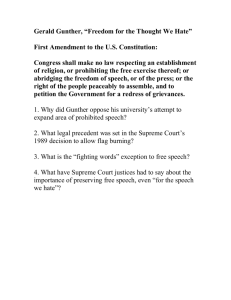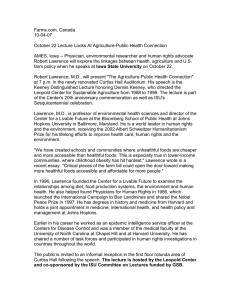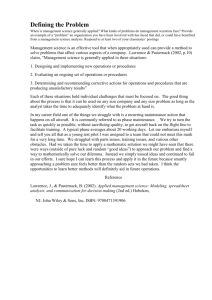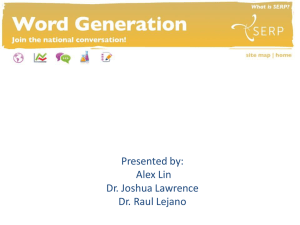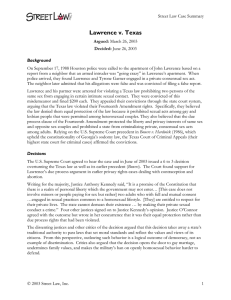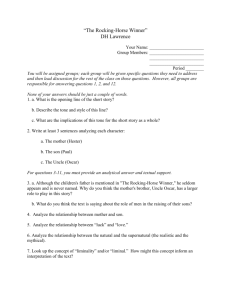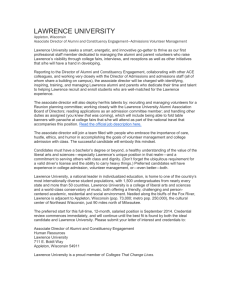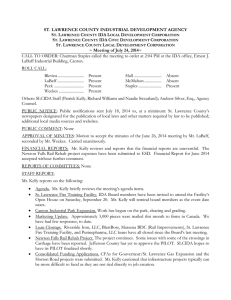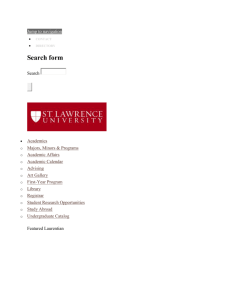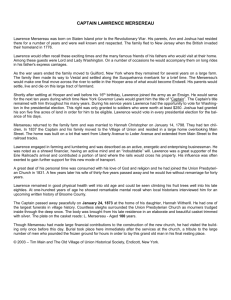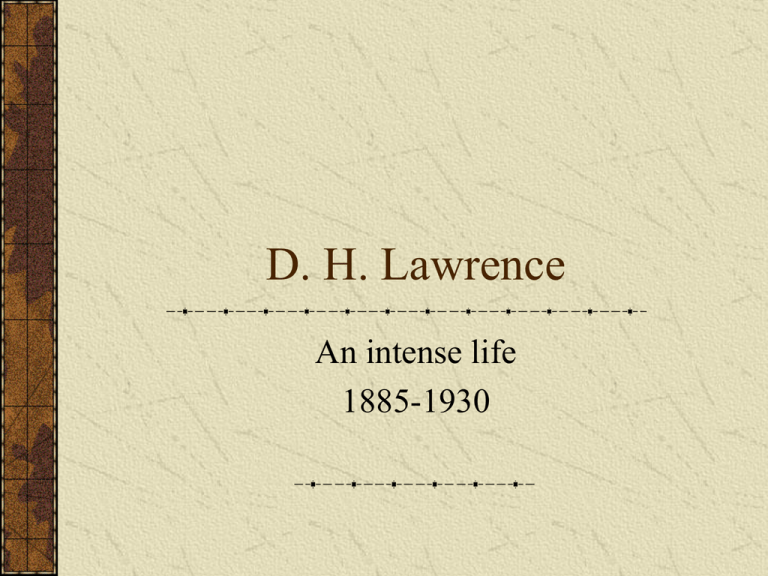
D. H. Lawrence
An intense life
1885-1930
The young Lawrence
David Herbert
Lawrence was born in
1885 in Eastwood,
Nottinghamshire.
He was the fourth of
five children of a
miner and an educated
mother.
Education
Educated in local schools and then attended
Nottingham University College where he
trained as a teacher.
Taught school in Croydon from 1908.
His first novel, The White Peacock, was
published in 1911,shortly after th death of
his mother to whom he’d been very close.
Other works
More novels soon followed
The Trespasser 1912
The Rainbow 1920
The Lost Girl 1920
The Boy in the Bush 1922
The Captain’s Doll 1923
The Virgin and the Gypsy 1930
Poems
Mostly imagistic and in free verse about the
individual inner nature of plants and
animals.
“Fish”
“Snake”
“Mountain Lion”
“Bavarian Gentians”
Look! We Have Come Through (1917)
Short Stories
“The Prussian Officer”
“The Woman Who Rode Away”
“The Fox”
“The Rocking-Horse Winner”
“The Man Who Loved Islands”
“The Odour of Chrysanthemums”
Major Novels
Women in Love
Sons and Lovers
Lady Chatterley’s Lover
Kangaroo
The Plumed Serpent
Criticism and Essays
Topics included
Travel writing
American literature
Psychoanalysis
The Unconscious
History and democracy
Personal Life
In 1912 Lawrence met
and ran off with Frieda
von Richthofen
Weekley, the German
wife of a Nottingham
professor. Frieda had
three children, yet left
them and her husband
to “elope” with
Lawrence.
A passionate relationship
The Lawrences
returned to England in
1914
They traveled with a
very literary “set”
including Huxley,
Katherine Mansfield
and her husband, and
the Bloomsbury folks
Struggles
Anti-German feeling during the war
Censorship
Ill health—tuberculosis
The search for a “right place”
Travel included Sicily, Sri Lanka, Australia,
New Mexico and Mexico, New Zealand,
Tahiti,Italy,Australia, and France
An Artists’ Colony in Taos
Themes and Philosophy
Deeply interested in Freudian and Jungian
psychology, Lawrence is also influenced by
primitive religions and nature mysticism.
Sex and sexual freedom as the cure for what
ails modern civilization.
Nietzschean idea of the superman and
rebellion.
Critical opinions of Lawrence
Tends to go in and out of fashion
Enjoys a great revival in the 1960s and
1970s
Is hard to categorize because of the volume
and variety
Varies in quality with stories most highly
praised
Suffers criticism from didactic slant
Last years
Becomes an almost guru to a group of
women who call him “Lorenzo” and vie for
his attention
Tuberculosis worsens, sending he and
Frieda in search of easier climates
Dies in Vence in the South of France in
1930 at age 44.
Lawrence’s Legacy
“A marvellous writer.
He forged his own
language.”' Claire
Tomalin,
`Lawrence urged men
and women to live, to
honour the quick of
themselves, to glory in
the exhilarating terror
of this brief life.'
Frederic Raphael,
Sunday Times
Frieda, on her husband
“What he had seen and felt and known he
gave in his writing to his fellow men, the
splendour of living, the hope of more and
more life … a heroic and immeasureable
gift.”

